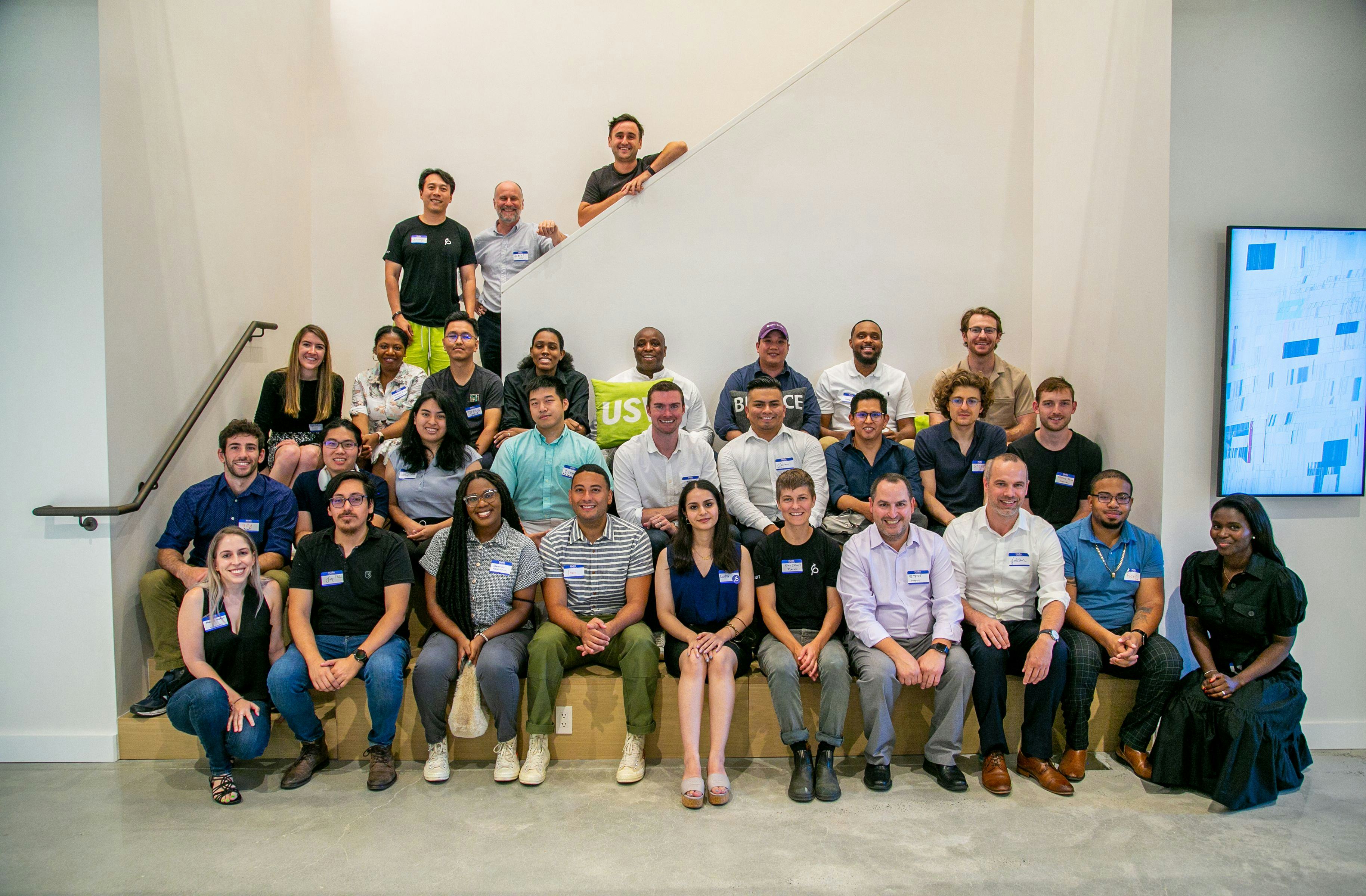

1.8 million. That’s the number of LGBTQ youth in the U.S. who seriously consider suicide each year.
But The Trevor Project—the largest organization providing suicide prevention and crisis intervention for that population—was only serving a fraction of those in need. They wanted a way to scale their services so they could save more lives.
In the latest installment of Pursuit’s Fireside Chat series with leaders and experts in the tech industry, The Trevor Project’s CEO and Executive Director, Amit Paley, shared a potential solution: technology.
“We are scaling our services and leveraging technology,” Amit told Pursuit Fellows and staff, “So there’s never an LGBTQ young person who has to feel alone.”
For The Trevor Project, that means building a team of software developers that can utilize artificial intelligence to deliver life-saving services more effectively and efficiently.
The Trevor Project’s tech transformation points to a larger trend: as the number of organizations and companies using technology has grown, so too has the demand for software developers. In fact, software developer is one of the fastest-growing jobs in the country.
And, with nonprofits like The Trevor Project becoming increasingly tech enabled, there’s no shortage of career opportunities for developers who want to use their tech skills for social good.

Founded in 1998, The Trevor Project annually serves more than 125,000 LGBTQ youth through its 24/7 TrevorLifeline, TrevorChat, and TrevorText crisis services. It has also expanded to include TrevorSpace, a social networking space and “affirming international community” for LGBTQ young people. To drive this technology, The Trevor Project is actively hiring new software developers.
“We are growing,” Amit said, “And we need a lot of folks who can help us with software engineering and machine learning so we can serve more people.”
Sky Davis, Pursuit alum and Senior Product Designer at Fundera, asked how “we as junior developers can support queer communities and communities of color?”
Software developers have a critical role to play in this space, Amit said. Many LGBTQ people, especially young people, “may be in parts of the country or world where they are physically isolated from sources of community and support.”
“But when they go online, they can connect with people like them,” he continued. “In the LGBTQ community, technology is an incredible force for good.”
Software developers can also make an impact by creating products with diverse users in mind. One example, Amit noted, are the platforms nonprofit organizations like The Trevor Project are required to use by government agencies to capture client data. Because they are typically designed through a binary lens, these tools often exclude questions about gender identity.
So, The Trevor Project’s software developers made some modifications. Instead of asking clients to check off “male,” “female” or “other,” they have the option of choosing from a list of many possible gender identities, or writing in their gender identity.
“We don't put ‘other’ as a category because putting ‘other’ literally others people,” Amit said. “We’ll ask questions that are different from those listed. We try to be thoughtful about the language we use.”
Learning this language is a “constant journey,” he added. “But the more you can be reflective and question your assumptions, the more inclusive the product you're creating can hopefully be.”

Amit Paley, CEO of The Trevor Project, joins the Pursuit community for the latest installment of our Fireside Chat series with leaders and experts in the tech industry.
Speaking on his career trajectory, Amit admitted that none of his career transitions were “planned out.” Rather, they were propelled by his own interests and passions. He began his career as a journalist at The Washington Post, covering the Iraq War and the 2008 financial crisis, before becoming a management consultant at McKinsey & Company. It was during his time at McKinsey, Amit recalled, “That there were a number of very well-publicized suicides of LGBTQ young people.”
“Those tragedies really hit me in a very emotional personal way, and I felt like I needed to do something,” he said. “I felt like I needed to give back and to try to make a change.”
Amit became the first-ever volunteer at The Trevor Project. He would work until 10 pm at McKinsey and then return home to spend his “midnight hours” taking calls from LGBTQ youth on the TrevorLifeline. It was this experience that sparked his career transition to The Trevor Project — and into technology. He took the helm of the organization during Pride Month in 2017 and has been in the role ever since.
“Any time you have the opportunity to turn your passion work into your paid work, take it,” Amit said. “Hopefully, you can leverage that passion and excitement, and make it your full-time job.”
If your passion lies at the intersection of technology and social good, check out organizations like The Trevor Project. They’re demonstrating a demand for software developers who are committed to designing products that are purposeful, impactful, and inclusive of all people.
In our Fireside Chat series, we bring in leaders and experts from the tech industry to share their stories with our community. Past Chats have featured Andy Dunn, founder of Bonobos, and Austin Woolridge, CEO and Co-founder of Players' Lounge. This is one of the many ways we create opportunities for our Fellows to network and connect with leaders in technology. Visit the Pursuit Fellowship for more about joining our community and launching a career in tech.

Amit's Feature on NBC's 2019 #Pride50 List




